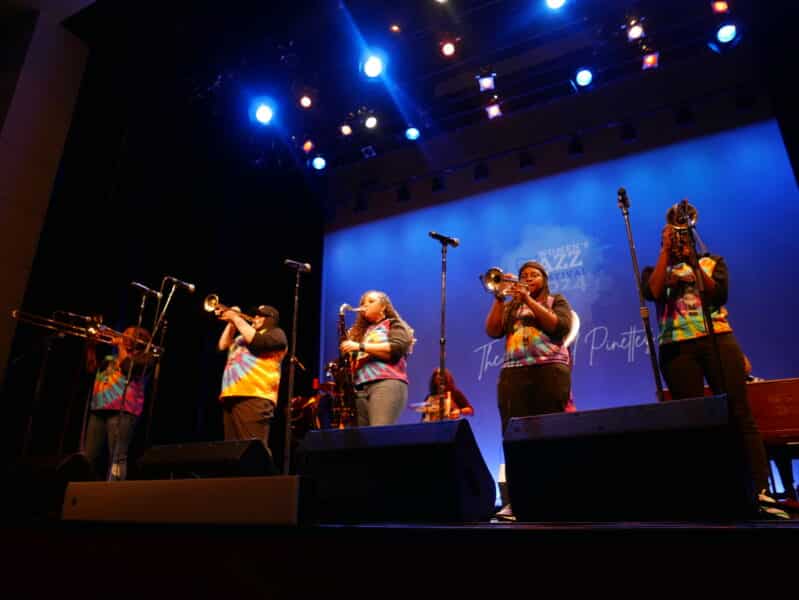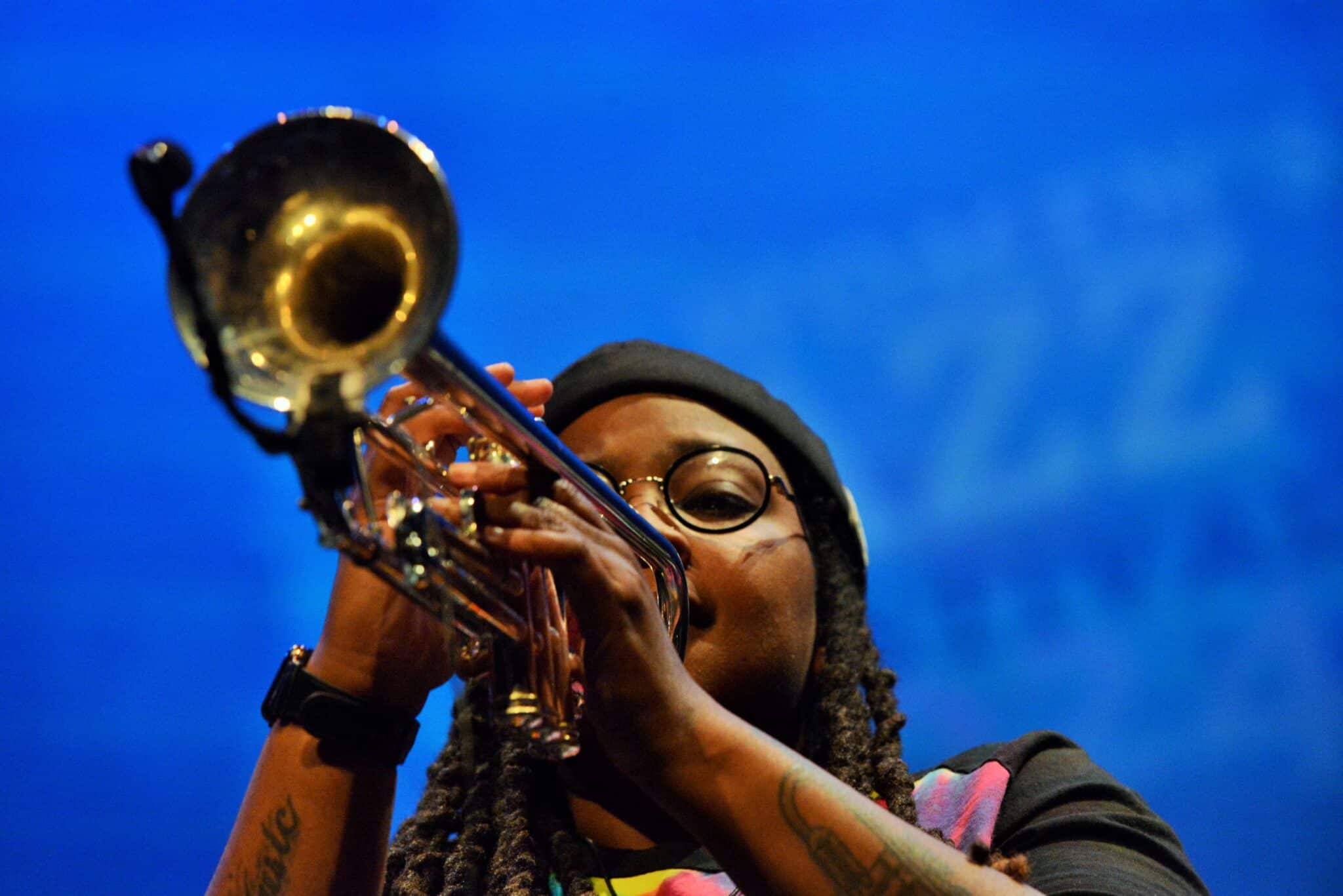One of the only all-women Brass Bands in the world, members of The Original Pinettes were born and raised in New Orleans, Louisiana, brought that authentic Bourbon Street flavor to the Schomburg Center stage. Photo by Bob Gore
The lights dimmed and the air stirred with excitement. Everywhere one looked in this theater, so full that people stood crowded in the back, the audience seemed ready to be captivated by the sounds coming from the horns of the nine women on stage.
Once they began to play, the Original Pinettes Brass Band commanded the stage and the audience at the Schomburg Center for Research in Black Culture responded enthusiastically. Frank Navarette watched and said later he “felt awe at both the skill and fervor of the performance of each and every member.”
The bone-rattling music had people moving in their seats and out into the aisles to dance. The Original Pinettes, formed in New Orleans in 1991, was one of the first groups of female musicians to break into the male-dominated genre. Their lineup showcases the traditional marching band style with instruments that include the trumpet, trombone, saxophone, and tuba.
Their appearance on March 18th, 2024, at the Schomburg, a Harlem branch of the New York Public Library, was part of the center’s annual March Women’s Jazz Festival. Created in 1992 by Melba Joyce, it aims to highlight the talent and artistry of women in jazz and honor the rich history of jazz in Harlem.
Before the music began, festival coordinators paid tribute to Black women and their contributions to jazz. They noted that the Original Pinettes stand out because they defied stereotypes and delivered high-level jazz performances. And once the Pinettes began to play their glittering brass instruments, the sounds of New Orleans took over the theater.

The Original Pinettes had the audience dancing in the aisles. Photo by Bob Gore.
The women wore matching outfits, black pants and tie dye T-shirts with the Original Pinettes emblem imprinted on them. The backdrop changed with each song to fit the mood. Couples lined the aisles dancing with one another, heads bobbing, feet tapping to the beat of the snare drum. Some swung handkerchiefs wildly. Others raised their hands high and clapped along to the bass drum. Frank Navarette said he “…felt joy in the sense of community exuding from the crowd as people stood up and danced in the aisles. There was a sense of freedom to be happy in the air.”
The band played covers to warm up and slid smoothly into original compositions, “Ain’t No City” and “Love Like This”. The crooning voices extracted whistles and whoops of joy from the audience.
Much like the audience, the band members appeared unable to contain themselves, their hips swayed to the beat stopping only at the cues to play their own bass instruments. As members took their solos, other band members tapped their sides. They shook their heads passionately, laughed, smiled, and often broke out into chorus in the middle of their performance.
“You could feel the pride and joy to be Black, women, and to be musicians in every note, and it was received and reciprocated by the audience in spades,” said Navarette.
Later we spoke with Ally Chapel, the leader of the Brass Queens, an all-female nine-piece brass band from Brooklyn, New York. The Brass Queens are deeply inspired by the New Orleans sound. She and her band members had been in the Schomburg audience and they also got caught up in the music. “We left feeling pure joy and positivity. Their energy on stage was infectious,” Chapel said. She gave us a statement from the Brass Queens that said, “Women have always been a part of the music scene. While they weren’t always recognized, it’s important that we celebrate the people making music today. We are so lucky that the Women’s Jazz Festival brought The Original Pinettes from New Orleans so that those who aren’t able to travel there or otherwise experience the 30-year-old ensemble, get the opportunity.”
The Original Pinettes Brass Band perform weekly in New Orleans and are booked for other jazz events. You can find more on their website and their social media.
The Brass Queens from Brooklyn, NY perform regularly and can be contacted on their website.
Tags: Ally Chapel Brass Queens Brass Queens Fairuz Omar Raya Original Pinettes Brass Band Schomburg Center for Research in Black Culture






